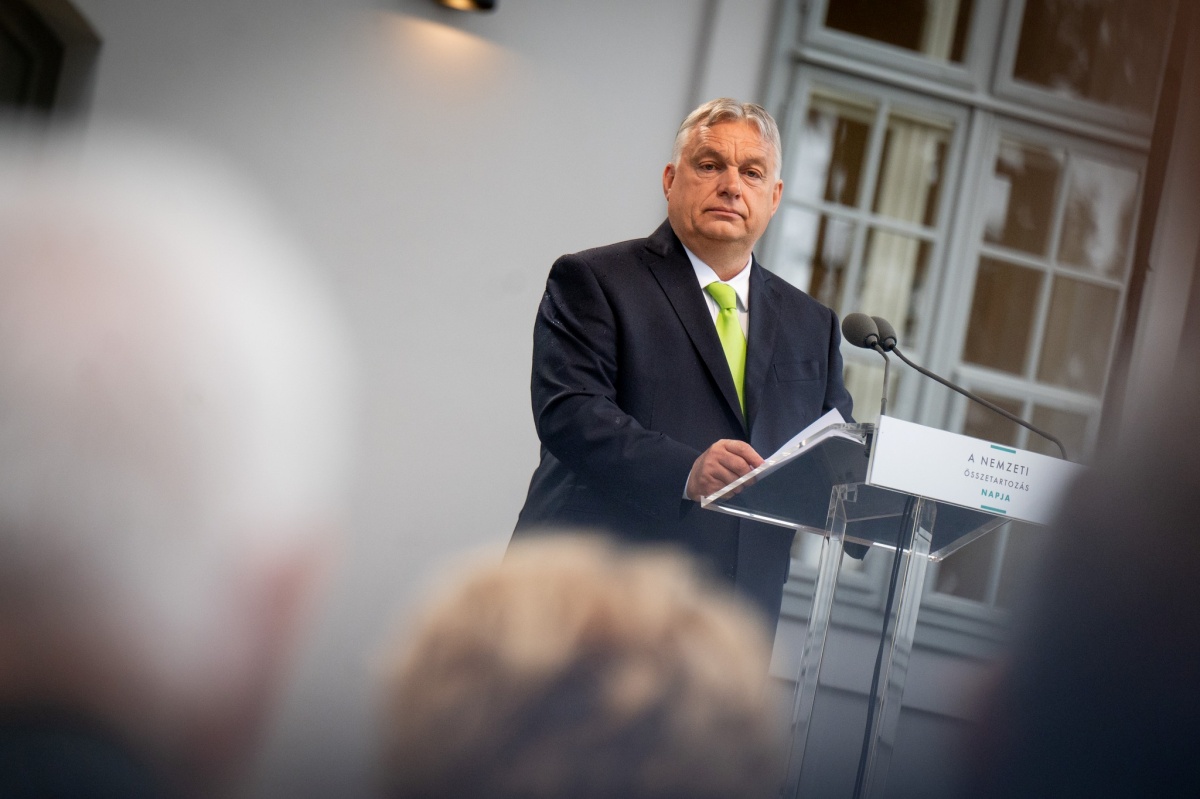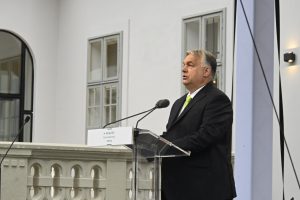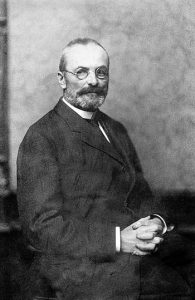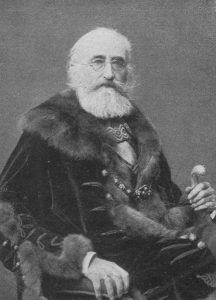The treaty dividing Hungary into pieces was signed at 4:32 p.m. in the Galérie des Cotelles of the Grand Trianon in Versailles.Continue reading

“New ‘imperial interests’ are trying to drag us into war, but in five days’ time we can say no to this in elections in front of the widest possible public,” Prime Minister Viktor Orbán stressed at the inauguration ceremony of the renovated Tisza Castle in Geszt (southeastern Hungary) on June 4, the Day of National Unity.
“There are five days until the elections, and now we can do what we have not had the opportunity to do for 110 years: the entire Hungarian nation can say no to war in a clear, democratic framework,” he said. “War is never inevitable, war is always a matter of human choice, and in the shadow of weapons, life and justice do not grow, only death and injustice,” the Prime Minister stressed.
“Today we must undertake to achieve what former Prime Minister István Tisza (1861-1918) failed to do: to prevent Hungary from taking part in another European war,” Mr. Orbán said, adding that our chances of doing so are better than they have been for 110 years. He recalled that 110 years ago, the peoples of the Carpathian Basin fought for their sovereignty against the Hungarians, and at that time, everyone – the Czechs, Austrians, Slovaks, Romanians, Serbs, and Croats – looked forward to the war and cheered it on. However, he added that with war looming again today, the people here are sending a clear message to the powers, namely that they have learned their lesson and do not want war.
The will of the peoples of the Carpathian Basin is clear: they do not want to be sacrificial pawns again, vassals to be sent to war on the imperial chessboard.
Neither for the sake of Brussels, nor for Washington, nor for the sake of George Soros,” he said, adding that this is what the members of the largest community in the Carpathian Basin, the Hungarians, are saying the loudest, but “we know that the others think the same.”

PM Viktor Orbán delivering hes speech at the inauguration of the Tisza Castle. Photo: MTI / Koszticsák Szilárd
He also said that it has now become clear that the rights of the peoples of Central Europe can be defended today not against the Hungarians, but in unity with the Hungarians; on the Day of National Unity, therefore, not only the Hungarians should unite, but “the peoples of the Carpathian Basin should also see each other as fellow citizens.” The Prime Minister said that the peoples living here are bound together not only by rigid geopolitical necessity, but also by a shared history and “a strange and inexplicably similar world view, the quality of existence here in Central Europe.”
National cohesion is not only a fact, but also a program…of national unification,”
the Prime Minister added, saying that it is not enough to remember the common past that unites us, we must want and plan for a common future.
Those who recommend that we dare to be small are committing a crime against the Hungarian people, Mr. Orbán said, adding that Hungarians are a nation that has a home in “every country in the Carpathian Basin” and that they make the whole more than the sum of its parts. He stressed that Hungarians must again and again call for cooperation and solidarity, and must also rejoice in the successes of their neighbors.
The Prime Minister called June 4 the day of the attempted murder of the Hungarian nation, stressing that 104 years ago we were subjected to a cruel, merciless, and unjust dictate. He listed the consequences. “The Hungarian is the one who is most hurt by the national wound of [the Treaty of] Trianon,” he said.
After all these years, it is clear that the Trianon Dictate was aimed at the death of our nation, he stressed, adding, however, that the great powers, accustomed to colonialism, did not know the character of Hungarians.
They wanted to bury us, but they didn’t know that we were their own people,” he noted.
He recalled that in the darkest hour, Hungary was handed over to people who, a hundred years later, it is still difficult to decide whether their incompetence or ill intentions were a greater scourge to the country. He quoted Sigmund Freud, who wrote that of the many counts, the “smartest,” István Tisza, was murdered, and the “dumbest,” Mihály Károlyi, was made prime minister.
Orbán said that the loss of Hungary 104 years ago was brought about by a war that the then prime minister, István Tisza, opposed with every ounce of his being, but the country did not have the strength to stay out of the war because it was chained to an empire that kept the question of war and peace to itself.He stressed that at that time, both in Vienna and Budapest, the attic was “full of warmongers, false messiahs, and foreign agents,” and Hungary had to march into a “forced war.” But in his view, not only the defeated but also the victors lost the First World War.
“The peace of Europe ended on the day of the Trianon Dictate, because the result was not peace in Europe, but another fear of the next war, which caused an even greater world conflagration two decades later,” he added. He stressed that the dictatorships that ended the war brought new devastation to the Carpathian Basin, soon inflamed ethnic tensions far greater than before, and eventually created countries that were more interdependent than ever, but because of historical scars, viewed each other with hostility.
This is how the Carpathian Basin became first a German, then a Soviet zone of influence and occupation, and why, in his view, Central Europe cannot make its voice heard with sufficient weight in today’s European Union.
At the same time, he said that we have now reached the point where the peoples of the Carpathian Basin want to be free and sovereign, despite all the imperial intrigues.

István Tisza in 1917 (photographed by Adolf Szenes). Photo: Wikipedia
The Prime Minister also pointed out that although 104 years ago the nation lost two thirds of its land and a third of its people were forced to live behind foreign borders, it did not choose resignation and oblivion, but to fight and survive.
Today, this nation is also able to reaffirm, year after year, its boundless will to live and its unity, and is finally able to pay tribute to the family that gave it so much,” he said.
He said that the history of the Tisza family was intertwined with the idea of a free, independent, and sovereign Hungary. He recalled that they had taken part in the anti-Turkish wars, but despite their military merits, they had to fight for almost a century to regain their ancestral estate. “We should not be surprised, even the Western empire of the time was not in the habit of recognizing and granting the rightful claim of the Hungarians,” he said.

Kálmán Tisza. Photo: Wikipedia
Via MTI; Featured Image: Facebook / Lázár János